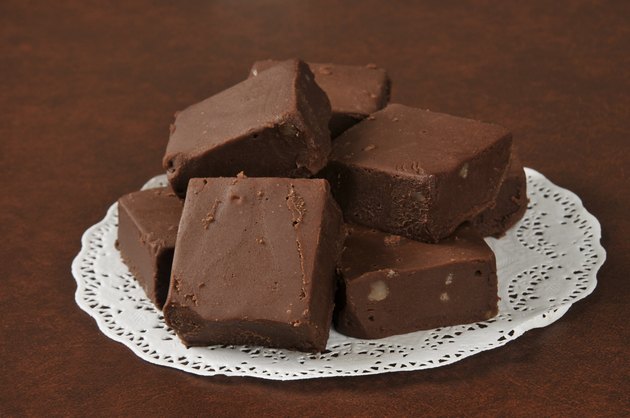Vegetable glycerin, also called glycerol, is sometimes used as a food additive in baked goods, candy, fudge, dairy products, meat, pasta, cereals, processed fruits and vegetables, condiments, soups, sauces, egg products and fish products. Sometimes it is used to help maintain moisture levels or mix oil- and water-based ingredients, but it can also be used as a sweetener. The U.S. Food and Drug Administration regards it as generally safe, though the additive can have some side effects in large amounts.

Laxative Effect
The small amount of vegetable glycerin used in food products isn't likely to cause side effects. It is classified as a sugar alcohol, though, and in turn can have a laxative effect when consumed in large amounts. Thus, it may cause diarrhea, excessive urination and dehydration if you eat a lot of it. Glycerin suppositories are used to relieve constipation because of this effect.
Other Side Effects
The more common, less serious side effects that can occur when you consume large amounts of vegetable glycerin include nausea, vomiting and headache. Lying down after taking medicinal amounts of vegetable glycerin can help limit the risk of headache and help relieve headaches that do occur, according to PubMed Health. When used as a medicine, glycerin must be prescribed by a doctor and used under medical supervision.
Rare Side Effects
Some less common side effects that warrant immediate medical attention include confusion and irregular heartbeat. These would be extremely unlikely to occur with the small amounts typically used in foods, as they aren't common even in medicinal doses.
Potential Allergic Reactions
Vegetable glycerin is made from either palm oil or coconut oil, so if you're allergic to either of these oils, you should avoid vegetable glycerin. Otherwise, it could cause an allergic reaction, with symptoms including difficulty breathing, swelling, rash, itching and anaphylaxis. Use animal-based forms of glycerin, which are made from beef tallow or other animal fats, or synthetic glycerin, which is made from corn syrup, sugar cane or a petroleum derivative called propylene, instead.
No comments:
Post a Comment